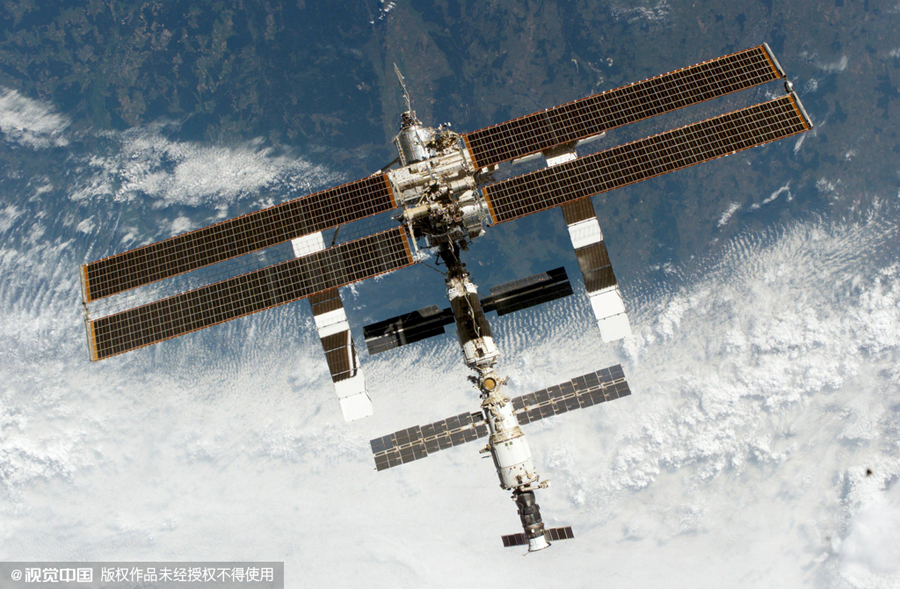
The International Space Station on Monday reached another milestone: the orbiting laboratory has been home to astronauts and cosmonauts for 15 consecutive years.
Although placed in orbit in 1998, the station did not welcome its first three residents until Nov. 2, 2000, when the Expedition One crew, U.S. space agency NASA astronaut Bill Shepard and Russian cosmonauts Yuri Gidzenko and Sergei Krikalev, began their 136-day stay on the fledgling orbital outpost.
Right now, six members of the Expedition 45 -- NASA astronauts Scott Kelly and Kjell Lindgren; Russian cosmonauts Mikhail Kornienko, Oleg Kononenko and Sergey Volkov; and Kimiya Yui of the Japan Aerospace Exploration Agency -- are living on the station orbiting about 400 kilometers above the Earth.
"We do a lot of experiments up here, but I think the most important experiment is the space station as an orbiting vehicle that keeps humans alive in space for long periods of time," Kelly told a news conference from the space station Monday.
Another U.S. astronaut, Lindgren, called the space station "a bridge." "It is a test bed for the technologies we need to develop and understand in order to have a successful trip to Mars," Lindgren added.
Since 2000, the space station has been continuously occupied with at least two people aboard. In total, 45 crewed expeditions, including more than 220 people have visited the station.
Over the last 15 years, crews have conducted more than 180 spacewalks, completed some 1,760 research investigations and produced over 1,200 scientific publications, according to NASA.
"I believe the station should be considered the blueprint for peaceful global cooperation," NASA Administrator Charles Bolden in a statement celebrating 15 years of human habitation aboard the space station.
"For more than a decade and a half, it has taught us about what's possible when tens of thousands of people across 15 countries collaborate to advance shared goals."
Bolden is one of the advocates who said the international project should to be considered for the Nobel Peace Prize, despite political tensions between the U.S. and Russia.
When asked if he agreed with the Bolden suggestion, Russia's Kononenko, who also took part in Monday's news conference, said: "I think he is right, 100 percent right."





